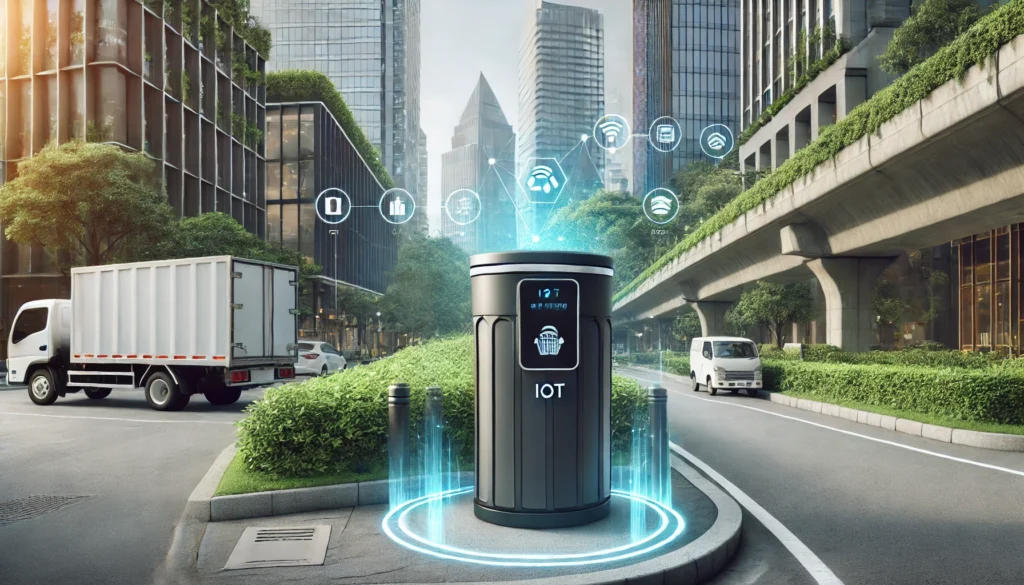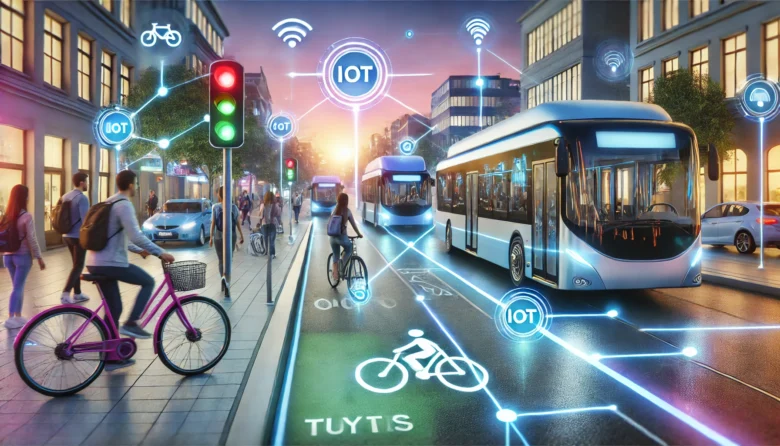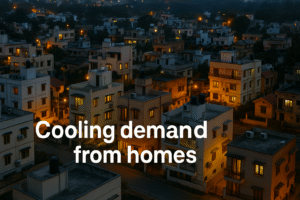Fun Fact: By 2025, the number of IoT (Internet of Things) devices globally is expected to exceed 75 billion—an incredible milestone for interconnected technology. These devices are not just making life easier but are also key to building smarter, more sustainable cities!
As cities grow and populations surge, the challenges of urban development—like traffic congestion, waste management, and resource depletion—become more pressing. Enter the Internet of Things (IoT). With its network of interconnected devices, IoT is reshaping sustainable urban development, offering solutions that make cities smarter, greener, and more livable. In this blog, we’ll dive into how IoT is paving the way for a sustainable urban future, touching on real-world applications and transformative case studies.
What is IoT and Why Does It Matter for Cities?
IoT refers to a network of devices embedded with sensors, software, and connectivity features that enable them to collect and exchange data. Think of smart streetlights that dim when no one’s around or waste bins that alert authorities when full. This interconnectedness is not just futuristic—it’s already happening in cities worldwide.
The Link Between IoT and Sustainability
Sustainability is about meeting today’s needs without compromising tomorrow’s. IoT aligns perfectly with this vision, as it helps cities optimize resources, reduce waste, and lower emissions. Here’s how:
Energy Efficiency: IoT-enabled smart grids adjust energy distribution based on demand, reducing wastage.
Water Management: Sensors detect leaks and monitor water quality, saving precious resources.
Eco-Friendly Mobility: Real-time data from IoT devices streamlines public transport and promotes greener alternatives like bike-sharing.

IoT Applications Driving Sustainable Urban Development
Smarter Infrastructure
Imagine a city where buildings self-regulate energy use, bridges alert authorities before cracks worsen, and roads communicate with traffic systems. IoT is making this a reality. For example:
Case Study: Barcelona, Spain
Barcelona has integrated IoT into its urban infrastructure. Smart streetlights reduce energy use by 30%, and IoT-powered parking systems cut emissions by minimizing the time drivers spend searching for parking.
Efficient Waste Management
Overflowing garbage bins are not just unsightly—they harm the environment. IoT-enabled waste management systems use sensors to monitor bin levels and schedule pickups only when necessary, reducing fuel consumption and costs.
Example: Bigbelly (a company specializing in smart waste solutions) has revolutionized urban waste collection with solar-powered trash compactors connected to IoT.
Sustainable Transportation
Urban mobility is one of the biggest contributors to greenhouse gas emissions. IoT tackles this by optimizing traffic flow and encouraging greener travel modes.
Example: Singapore uses IoT-driven smart traffic systems to monitor and manage congestion in real time, reducing commuter delays and emissions.
Water Conservation and Management
IoT devices monitor water usage, detect leaks, and ensure the quality of drinking water. In drought-prone regions, this technology is a lifesaver.
Case Study: Cape Town, South Africa
During its “Day Zero” water crisis, IoT-based water management tools helped the city control consumption and educate residents on sustainable practices.
Resilient Urban Planning
IoT aids in long-term planning by providing city planners with actionable insights. Data from IoT sensors help identify areas needing immediate attention, like neighbourhoods prone to flooding or air pollution hotspots.
Example: The U.S.-based company Senseable City Lab partners with cities globally to create data-driven urban solutions.
IoT Success Stories in Sustainable Cities
Amsterdam, The Netherlands
Amsterdam has embraced IoT to become one of Europe’s smartest cities. The city uses IoT for waste management, energy-efficient streetlights, and monitoring air quality.
Songdo, South Korea
A “smart city” built from scratch, Songdo integrates IoT into every aspect of urban life. Residents enjoy automated home systems, and the city monitors traffic and energy use in real time.
Pune, India
In India, Pune Municipal Corporation adopted an IoT-based waste management system, significantly improving cleanliness and reducing carbon footprints.
Challenges in Implementing IoT for Urban Sustainability
While IoT offers immense potential, it’s not without challenges:
Cost: Deploying IoT infrastructure requires significant investment.
Data Security: Protecting sensitive information from cyberattacks is crucial.
Integration: Legacy systems in older cities may not easily integrate with IoT technology.
Conclusion
Far from being just another tech trend, IoT is a transformative force driving the evolution of sustainable urban development. From smarter energy use to greener transportation and waste management, IoT is transforming the way we build and live in cities. As citizens, businesses, and governments, we all have a role in supporting and advocating for IoT-driven solutions. The future of our cities—and our planet—depends on it.
Call to Action: Are you inspired by how IoT is changing urban landscapes? Start small—opt for smart home devices, support IoT-based initiatives in your community, or spread the word about its benefits. Together, we can make sustainable cities a reality.
Author’s Note
Urban sustainability is not just a global challenge but a personal responsibility. Writing this blog was an enlightening journey, and I hope it sparks your interest in how technology can be a force for good.
G.C., Ecosociosphere contributor.
References and Further Reading
- Case Studies in Smart Urban Development
- The Internet of Things (IoT): Connecting the World in an Era of Smart Devices – NewCompanyDriver.com. http://newcompanydriver.com/the-internet-of-things-iot-connecting-the-world-in-an-era-of-smart-devices/
- 10 IoT Solutions for the Environment – Blues. https://blues.io/blog/10-iot-solutions-for-the-environment/




